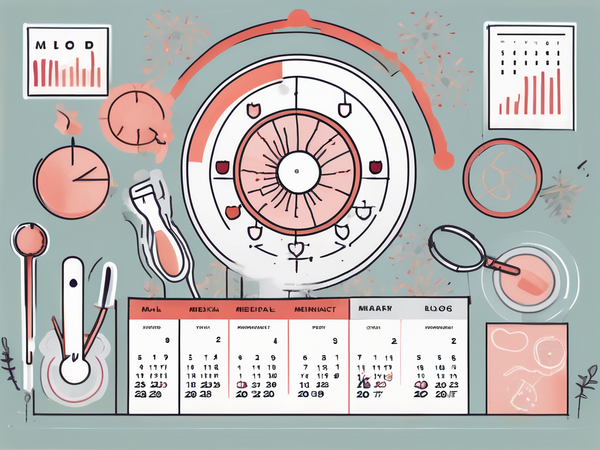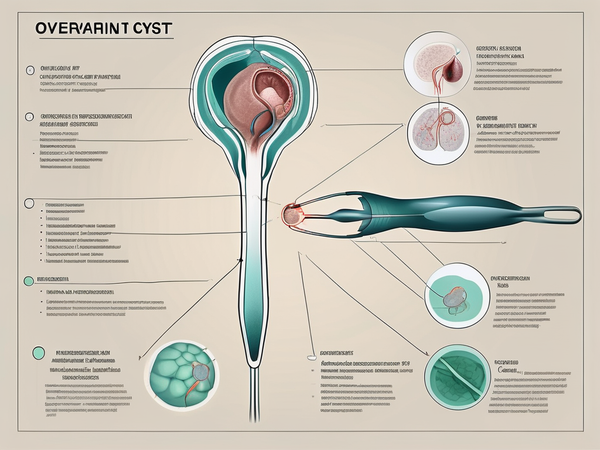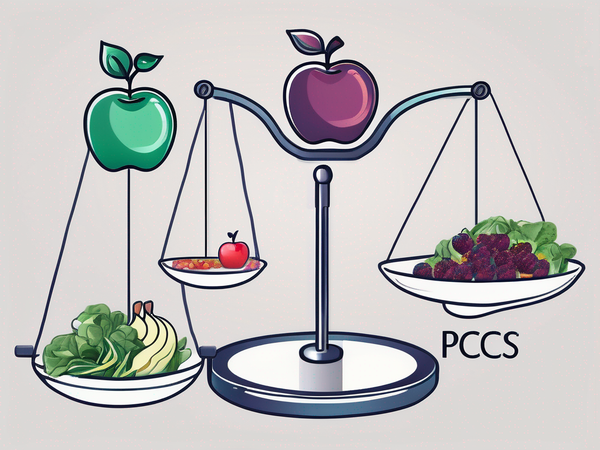Mood swings can be a challenging aspect of living with Polycystic Ovary Syndrome (PCOS). Women with PCOS may experience intense emotional fluctuations that can disrupt their daily lives and relationships. Understanding the causes of PCOS mood swings and learning how to manage them effectively is crucial for overall emotional well-being and quality of life.
Understanding Mood Swings
Mood swings refer to rapid and extreme changes in emotional states. They can manifest as sudden bouts of anger, irritability, sadness, or anxiety. While mood swings are a normal part of life for many women, those with PCOS often experience them more intensely and frequently. It's important to recognize that mood swings can impact various aspects of a person's life, including relationships, work performance, and overall well-being.
The Science Behind Mood Swings
Mood swings are closely tied to hormonal fluctuations in the body. Hormones such as estrogen, progesterone, and testosterone play a significant role in regulating mood. Imbalances in these hormones, which are commonly observed in women with PCOS, can lead to heightened emotional reactivity and instability.
Furthermore, neurotransmitters like serotonin and dopamine also influence mood regulation. Disruptions in the delicate balance of these chemicals can contribute to mood swings and emotional dysregulation. Understanding the complex interplay between hormones and neurotransmitters is crucial in developing effective treatment strategies for managing mood swings.
Common Triggers of Mood Swings
In addition to hormonal imbalances, several factors can trigger mood swings in women with PCOS.
- Stress
- Inadequate Sleep
- Poor Nutrition
- Lifestyle Choices
These can all contribute to emotional turbulence. Identifying and addressing these triggers is vital for managing and reducing the frequency of mood swings.
Moreover, environmental factors such as work pressures, relationship conflicts, and societal expectations can also influence mood swings. Building resilience through stress-reduction techniques, mindfulness practices, and healthy coping mechanisms can empower individuals to navigate challenging emotional experiences with greater ease.
The Connection Between PCOS and Mood Swings
PCOS affects not only physical health but also emotional well-being. The hormonal imbalances associated with PCOS can have a profound impact on mood stability and overall mental health. Understanding this connection is crucial for developing effective strategies to manage and alleviate mood swings.
It's important to recognize that the relationship between PCOS and mood swings is complex and multifaceted. While the physical symptoms of PCOS are well-documented, the emotional and psychological effects are often overlooked. Research suggests that the hormonal fluctuations and metabolic disturbances characteristic of PCOS can contribute to emotional distress and mood irregularities.
Hormonal Imbalances and Their Effects
Hormonal imbalances are a hallmark of PCOS. Elevated levels of androgens, or male hormones, and insulin resistance can disrupt the delicate hormonal balance in the body. These imbalances have been linked to a higher risk of mood disorders, including depression and anxiety.
Furthermore, the impact of hormonal imbalances on neurotransmitters in the brain can exacerbate mood swings and emotional instability. Serotonin, dopamine, and norepinephrine levels may be affected by the hormonal fluctuations in PCOS, leading to symptoms such as irritability, low mood, and heightened stress responses.
PCOS and Mental Health
The chronic nature of PCOS and its associated symptoms can create a sense of ongoing stress and emotional burden for individuals living with the condition. The uncertainty surrounding fertility, weight management challenges, and the physical manifestations of PCOS can all contribute to a heightened risk of developing mental health issues.
The Impact of PCOS on Emotional Well-being
The emotional impact of Polycystic Ovary Syndrome (PCOS) extends beyond the physical symptoms, affecting various aspects of a woman's mental health. Mood swings, anxiety, and depression are prevalent challenges faced by individuals with PCOS, attributed to the hormonal imbalances characteristic of the condition, as well as the psychological stress of managing a chronic illness. It is crucial to delve deeper into how PCOS influences emotional well-being to develop effective coping mechanisms and support systems.
Furthermore, the emotional toll of PCOS can manifest in different ways for each individual. Some may experience heightened levels of stress and anxiety due to the uncertainty surrounding their symptoms and treatment options. Others may battle feelings of inadequacy and low self-esteem as they navigate the societal pressures of beauty standards and fertility expectations.
Anxiety and Depression in PCOS Patients
Research has consistently shown a higher prevalence of anxiety and depression among women diagnosed with PCOS compared to those without the condition. The complex interplay between hormonal fluctuations, physical symptoms like weight gain and acne, and the emotional burden of managing a chronic illness can significantly impact mental health. These psychological challenges underscore the importance of holistic care that addresses both the physical and emotional aspects of PCOS.
Emotional Rollercoaster: The Daily Struggles
Living with PCOS entails navigating a myriad of daily challenges that can wear down one's emotional resilience. The emotional rollercoaster of coping with unpredictable mood swings, persistent symptoms, and societal stigmas can lead to feelings of isolation and frustration. Women with PCOS often find themselves juggling personal and professional responsibilities while managing the physical and emotional demands of their condition, highlighting the need for comprehensive support networks and tailored treatment plans.
Strategies for Managing PCOS-Induced Mood Swings
While mood swings associated with PCOS can be challenging to navigate, some strategies can help manage and alleviate them. It's important to note that what works for one person may not work for another. Discovering the most effective strategies often involves a combination of lifestyle changes, medical treatments, and therapeutic interventions.
Polycystic Ovary Syndrome (PCOS) is a complex endocrine disorder that affects millions of women worldwide. Beyond its physical symptoms, PCOS can also have a significant impact on mental health, leading to mood swings, anxiety, and depression. Managing these emotional fluctuations is crucial for overall well-being and quality of life.
Lifestyle Changes for Better Mood Regulation
Adopting a healthy lifestyle can positively impact both physical and emotional well-being. Regular exercise, a balanced diet, and adequate sleep can help stabilize mood and reduce the severity of mood swings. Engaging in stress-reducing activities such as mindfulness, meditation, and hobbies can also provide relief from emotional turbulence.
In addition to these lifestyle changes, maintaining a strong support system is essential for managing PCOS-induced mood swings. Connecting with friends, family, or a support group can offer understanding, empathy, and encouragement during difficult times. Sharing experiences and coping strategies with others facing similar challenges can foster a sense of community and empowerment.
Medical Treatments and Therapies
In some cases, medical interventions may be necessary to manage PCOS-induced mood swings. Hormonal therapies, such as birth control pills or anti-androgen medications, can help regulate hormone levels and stabilize mood. Additionally, therapies such as cognitive-behavioral therapy (CBT) or counseling can provide valuable support and coping mechanisms for navigating the emotional challenges of PCOS.
It's important for individuals with PCOS to work closely with healthcare providers to develop a personalized treatment plan that addresses both the physical and emotional aspects of the condition. By taking a comprehensive approach to managing PCOS-induced mood swings, individuals can improve their quality of life and overall well-being.
Conclusion
In conclusion, mood swings are a common and challenging aspect of living with PCOS. The hormonal imbalances associated with PCOS can have a significant impact on emotional well-being and overall quality of life. Women with PCOS may experience mood swings more intensely and frequently, making effective management strategies essential. By understanding the science behind mood swings, recognizing the connection between PCOS and emotional health, and implementing lifestyle changes and therapies, it is possible to regain control over moods and achieve a greater sense of emotional stability and well-being.



























 DOWNLOAD NOW
DOWNLOAD NOW
